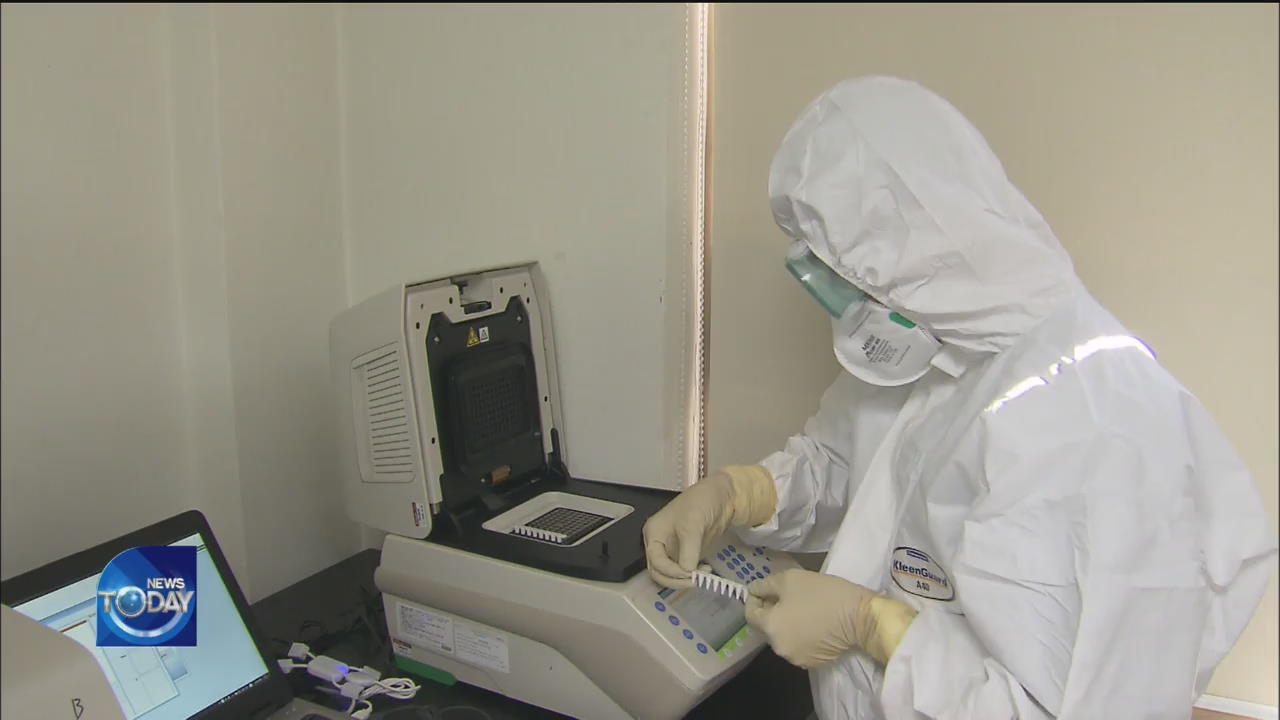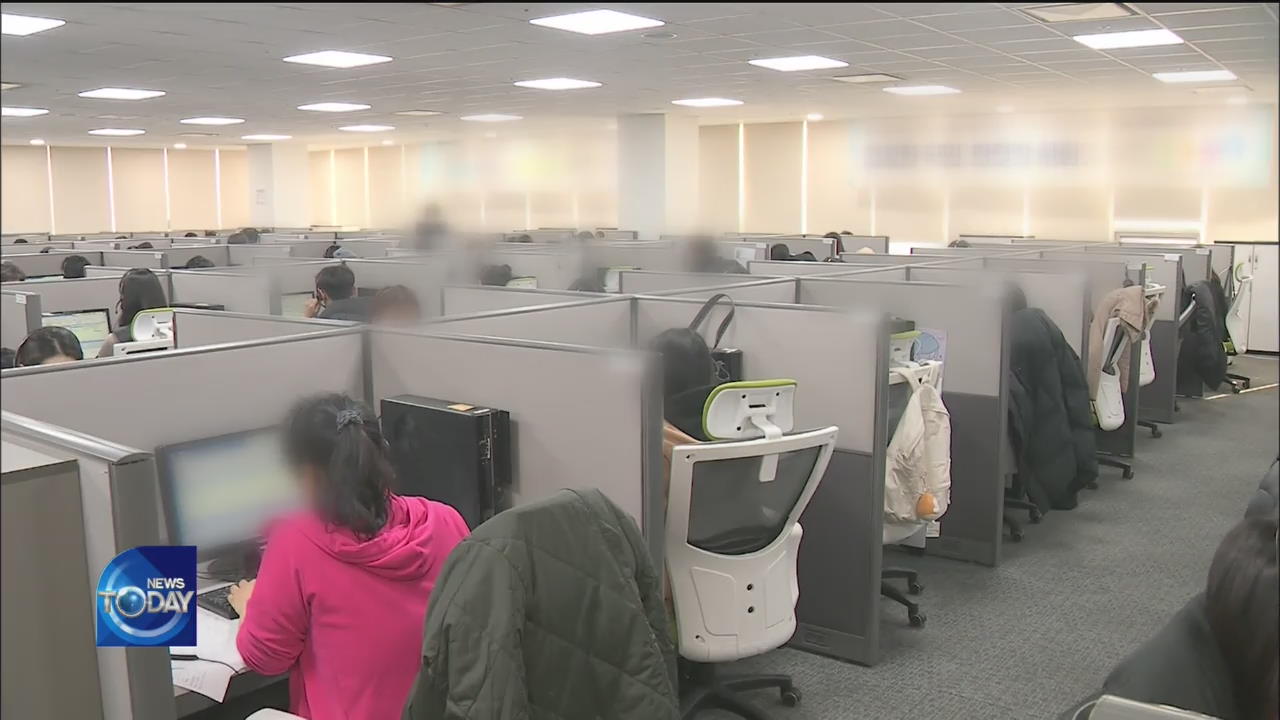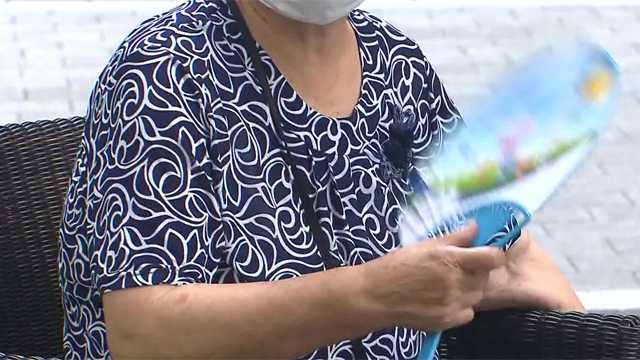CASES INDICATING VAGUE DIAGNOSIS OF VIRUS
입력 2020.03.13 (15:08)
수정 2020.03.13 (16:46)
읽어주기 기능은 크롬기반의
브라우저에서만 사용하실 수 있습니다.
[Anchor Lead]
There have been several cases in which initial negative COVID-19 test results have been reversed later on. Such overturned results can lead to delays in treatment or further spreads. Such cases have been reported most frequently in group homes in the Gyeongbuk area. Here is a look at why the diagnostic tests are producing wrong results.
[Pkg]
More than 50 people from Pureun Nursing Home in Bonghwa, Gyeongsangbuk-do Province, tested positive for COVID-19. A nursing assistant in her sixties tested negative in the first round of tests on March 7th. But her fever didn't go down, so she was tested again. Two days later, the result came back positive.
[Soundbite] (NURSING ASSISTANT WITH REVERSED TEST RESULTS(VOICE MODIFIED)) : "I was stunned. I couldn't believe the result. How could this happen?"
Twenty-one people in group homes in the Gyeongsangbuk-do area had their test results reversed like this. Some received results that were neither positive nor negative.
[Soundbite] (FAMILY OF A PATIENT WITH AMBIGUOUS RESULTS) : "Test results should be definite, but it was ambiguous. All they did was give medicine and ask us to self-quarantine. It's frustrating because we can't be hospitalized."
When a person tests negative or the result is ambiguous, he or she is not eligible for treatment. This can be a dangerous situation if the individual is old or has preexisting conditions. Former Daegu city councilman Lee Cha-soo who tested negative for COVID-19 was found to be positive after his death on March 7th. Experts believe he was either tested during the incubation period or the amount of virus was too minuscule for detection. They conclude it could be a similar situation with the massive reversal cases in the group living facilities in the Gyeongbuk area. Since an exhaustive testing was done on all cohabitants as soon as a confirmed case was discovered, they were more likely to get negative results.
[Soundbite] RYU SEONG-YEOL(KEIMYUNG UNIV. DONGSAN MEDICAL CENTER) : "The amount of virus is too miniscule in the early or recovery stages for the tests to detect."
Even if tests showed negative results, continuous monitoring and thorough quarantine measures are needed if infection is suspected.
There have been several cases in which initial negative COVID-19 test results have been reversed later on. Such overturned results can lead to delays in treatment or further spreads. Such cases have been reported most frequently in group homes in the Gyeongbuk area. Here is a look at why the diagnostic tests are producing wrong results.
[Pkg]
More than 50 people from Pureun Nursing Home in Bonghwa, Gyeongsangbuk-do Province, tested positive for COVID-19. A nursing assistant in her sixties tested negative in the first round of tests on March 7th. But her fever didn't go down, so she was tested again. Two days later, the result came back positive.
[Soundbite] (NURSING ASSISTANT WITH REVERSED TEST RESULTS(VOICE MODIFIED)) : "I was stunned. I couldn't believe the result. How could this happen?"
Twenty-one people in group homes in the Gyeongsangbuk-do area had their test results reversed like this. Some received results that were neither positive nor negative.
[Soundbite] (FAMILY OF A PATIENT WITH AMBIGUOUS RESULTS) : "Test results should be definite, but it was ambiguous. All they did was give medicine and ask us to self-quarantine. It's frustrating because we can't be hospitalized."
When a person tests negative or the result is ambiguous, he or she is not eligible for treatment. This can be a dangerous situation if the individual is old or has preexisting conditions. Former Daegu city councilman Lee Cha-soo who tested negative for COVID-19 was found to be positive after his death on March 7th. Experts believe he was either tested during the incubation period or the amount of virus was too minuscule for detection. They conclude it could be a similar situation with the massive reversal cases in the group living facilities in the Gyeongbuk area. Since an exhaustive testing was done on all cohabitants as soon as a confirmed case was discovered, they were more likely to get negative results.
[Soundbite] RYU SEONG-YEOL(KEIMYUNG UNIV. DONGSAN MEDICAL CENTER) : "The amount of virus is too miniscule in the early or recovery stages for the tests to detect."
Even if tests showed negative results, continuous monitoring and thorough quarantine measures are needed if infection is suspected.
■ 제보하기
▷ 카카오톡 : 'KBS제보' 검색, 채널 추가
▷ 전화 : 02-781-1234, 4444
▷ 이메일 : kbs1234@kbs.co.kr
▷ 유튜브, 네이버, 카카오에서도 KBS뉴스를 구독해주세요!
- CASES INDICATING VAGUE DIAGNOSIS OF VIRUS
-
- 입력 2020-03-13 15:10:09
- 수정2020-03-13 16:46:45

[Anchor Lead]
There have been several cases in which initial negative COVID-19 test results have been reversed later on. Such overturned results can lead to delays in treatment or further spreads. Such cases have been reported most frequently in group homes in the Gyeongbuk area. Here is a look at why the diagnostic tests are producing wrong results.
[Pkg]
More than 50 people from Pureun Nursing Home in Bonghwa, Gyeongsangbuk-do Province, tested positive for COVID-19. A nursing assistant in her sixties tested negative in the first round of tests on March 7th. But her fever didn't go down, so she was tested again. Two days later, the result came back positive.
[Soundbite] (NURSING ASSISTANT WITH REVERSED TEST RESULTS(VOICE MODIFIED)) : "I was stunned. I couldn't believe the result. How could this happen?"
Twenty-one people in group homes in the Gyeongsangbuk-do area had their test results reversed like this. Some received results that were neither positive nor negative.
[Soundbite] (FAMILY OF A PATIENT WITH AMBIGUOUS RESULTS) : "Test results should be definite, but it was ambiguous. All they did was give medicine and ask us to self-quarantine. It's frustrating because we can't be hospitalized."
When a person tests negative or the result is ambiguous, he or she is not eligible for treatment. This can be a dangerous situation if the individual is old or has preexisting conditions. Former Daegu city councilman Lee Cha-soo who tested negative for COVID-19 was found to be positive after his death on March 7th. Experts believe he was either tested during the incubation period or the amount of virus was too minuscule for detection. They conclude it could be a similar situation with the massive reversal cases in the group living facilities in the Gyeongbuk area. Since an exhaustive testing was done on all cohabitants as soon as a confirmed case was discovered, they were more likely to get negative results.
[Soundbite] RYU SEONG-YEOL(KEIMYUNG UNIV. DONGSAN MEDICAL CENTER) : "The amount of virus is too miniscule in the early or recovery stages for the tests to detect."
Even if tests showed negative results, continuous monitoring and thorough quarantine measures are needed if infection is suspected.
There have been several cases in which initial negative COVID-19 test results have been reversed later on. Such overturned results can lead to delays in treatment or further spreads. Such cases have been reported most frequently in group homes in the Gyeongbuk area. Here is a look at why the diagnostic tests are producing wrong results.
[Pkg]
More than 50 people from Pureun Nursing Home in Bonghwa, Gyeongsangbuk-do Province, tested positive for COVID-19. A nursing assistant in her sixties tested negative in the first round of tests on March 7th. But her fever didn't go down, so she was tested again. Two days later, the result came back positive.
[Soundbite] (NURSING ASSISTANT WITH REVERSED TEST RESULTS(VOICE MODIFIED)) : "I was stunned. I couldn't believe the result. How could this happen?"
Twenty-one people in group homes in the Gyeongsangbuk-do area had their test results reversed like this. Some received results that were neither positive nor negative.
[Soundbite] (FAMILY OF A PATIENT WITH AMBIGUOUS RESULTS) : "Test results should be definite, but it was ambiguous. All they did was give medicine and ask us to self-quarantine. It's frustrating because we can't be hospitalized."
When a person tests negative or the result is ambiguous, he or she is not eligible for treatment. This can be a dangerous situation if the individual is old or has preexisting conditions. Former Daegu city councilman Lee Cha-soo who tested negative for COVID-19 was found to be positive after his death on March 7th. Experts believe he was either tested during the incubation period or the amount of virus was too minuscule for detection. They conclude it could be a similar situation with the massive reversal cases in the group living facilities in the Gyeongbuk area. Since an exhaustive testing was done on all cohabitants as soon as a confirmed case was discovered, they were more likely to get negative results.
[Soundbite] RYU SEONG-YEOL(KEIMYUNG UNIV. DONGSAN MEDICAL CENTER) : "The amount of virus is too miniscule in the early or recovery stages for the tests to detect."
Even if tests showed negative results, continuous monitoring and thorough quarantine measures are needed if infection is suspected.
이 기사가 좋으셨다면
-
좋아요
0
-
응원해요
0
-
후속 원해요
0















![[단독] 대통령실 국정상황실 파견 총경급 인사 문책성 복귀](/data/layer/904/2025/07/20250707_q2dg0Q.jpg)

이 기사에 대한 의견을 남겨주세요.